Stem Cell
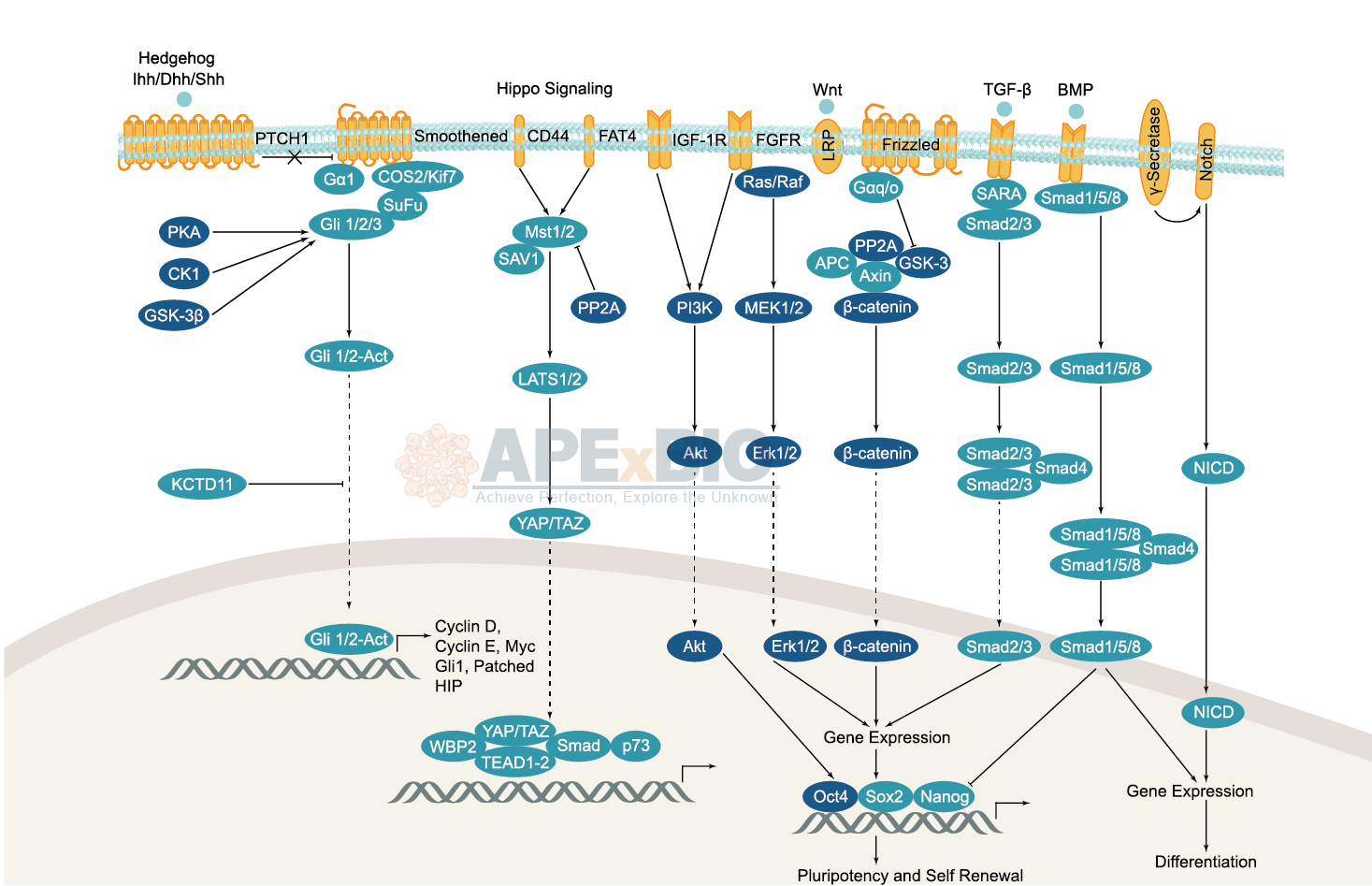
In ESC, BMP/TGF-β signaling pathway plays a key role in maintaining pluripotency and self-renewal. It signals through Smad proteins, and the FGF signaling pathway, which activates the MAPK and Akt pathways. The Wnt signaling pathway also promotes pluripotency. OCT-4, SOX2, and NANOG are three main transcription factors that are expressed and activated by these pathways. Induced pluripotent stem cells (iPSC) are pluripotent cells that can be generated from differentiated cells with forced expression of specific reprogramming factors. Both ESC and iPSC can be induced to develop into distinct cell types that associated with three primary germ layers: ectoderm, mesoderm and endoderm. Signaling pathways that control the development of these cell lineages, including BMP/TGF-β, Notch, Wnt/β-catenin, Hedgehog and Hippo pathways, which regulate cell division, growth and differentiation. Defects in stem cell signaling are related to developmental disorders and cancer.
-
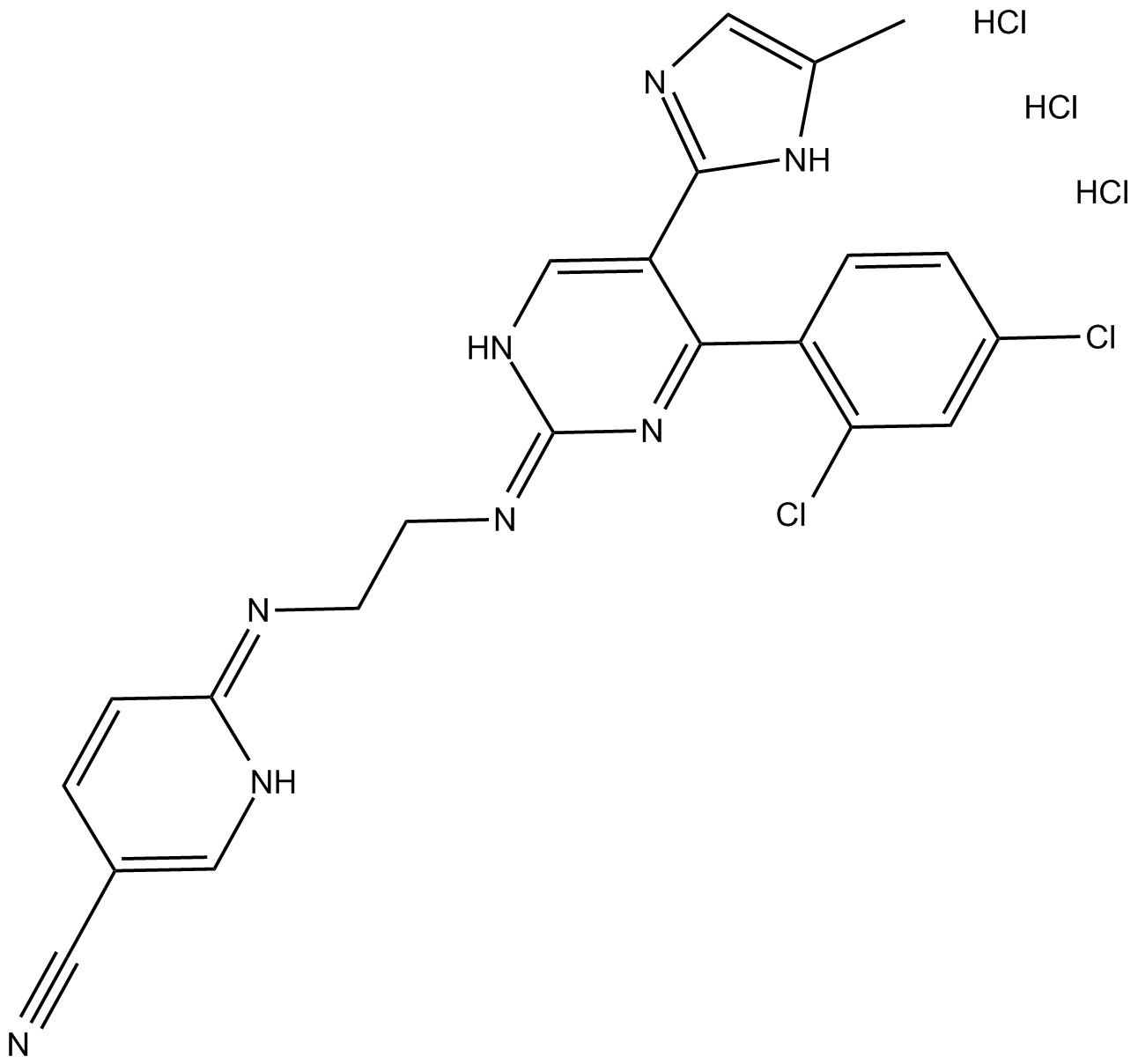 B5779 CHIR 99021 trihydrochlorideSummary: A glycogen synthase kinase 3 (GSK-3) inhibitor
B5779 CHIR 99021 trihydrochlorideSummary: A glycogen synthase kinase 3 (GSK-3) inhibitor -
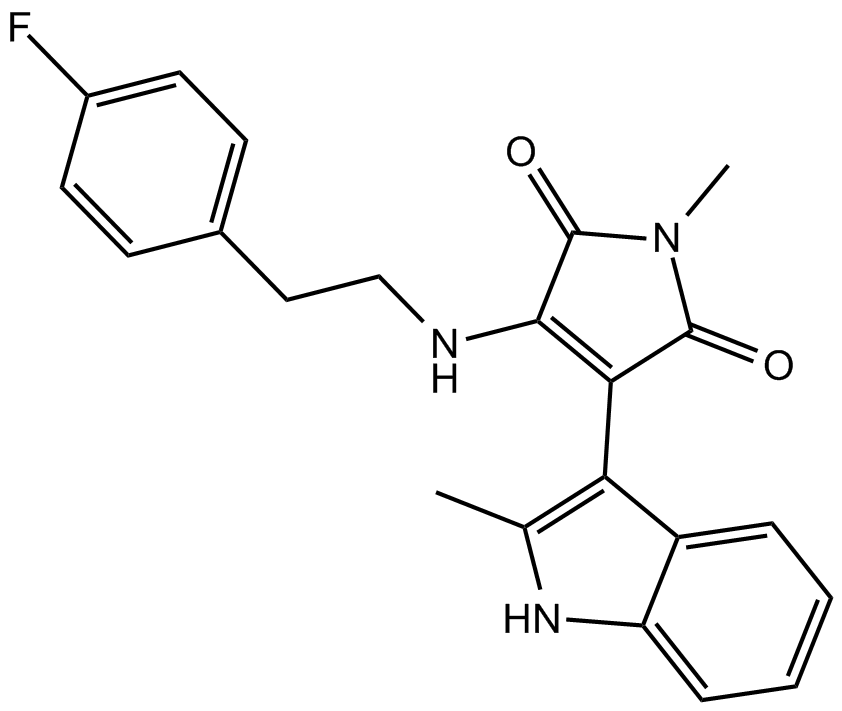 B4793 IM-12Summary: GSK-3β inhibitor, potent
B4793 IM-12Summary: GSK-3β inhibitor, potent -
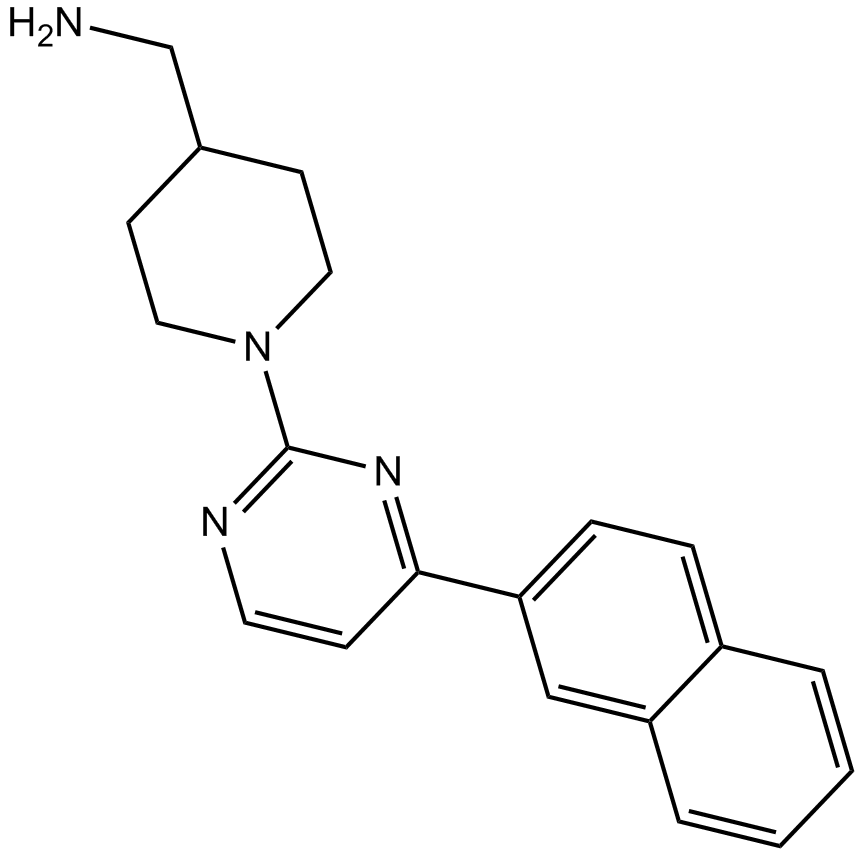 B4818 WAY-262611Summary: β-Catenin agonist
B4818 WAY-262611Summary: β-Catenin agonist -
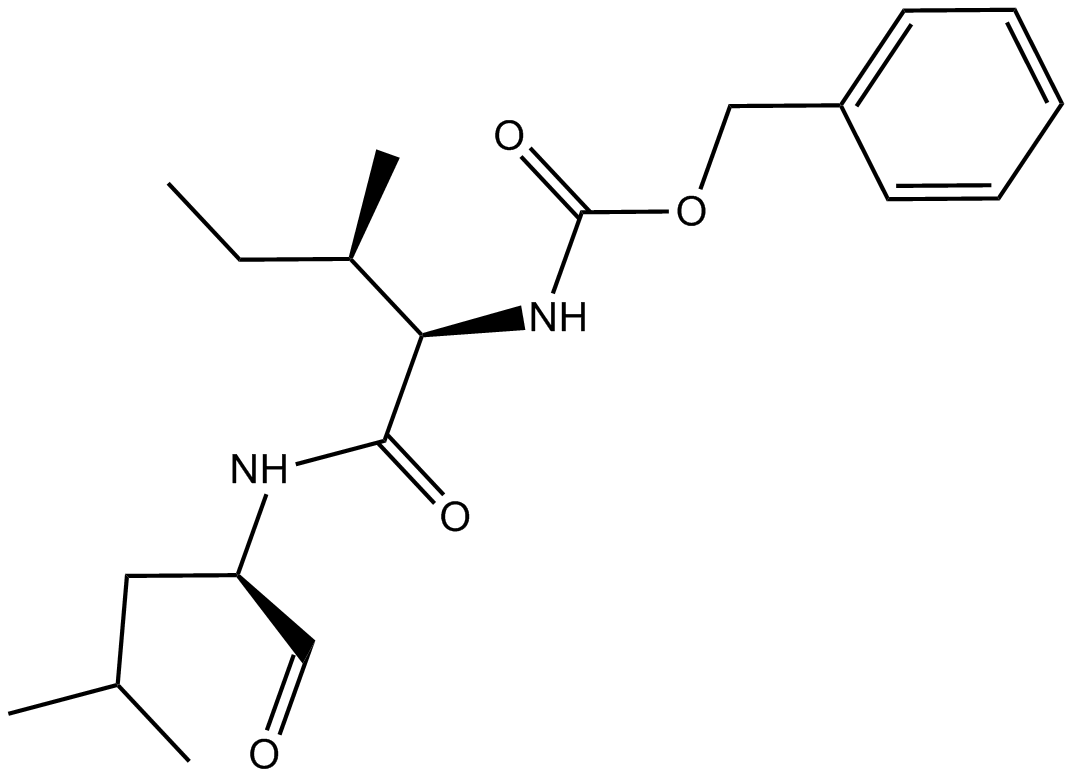 B4908 Z-Ile-Leu-aldehydeSummary: potent gamma-Secretase inhibitor
B4908 Z-Ile-Leu-aldehydeSummary: potent gamma-Secretase inhibitor -
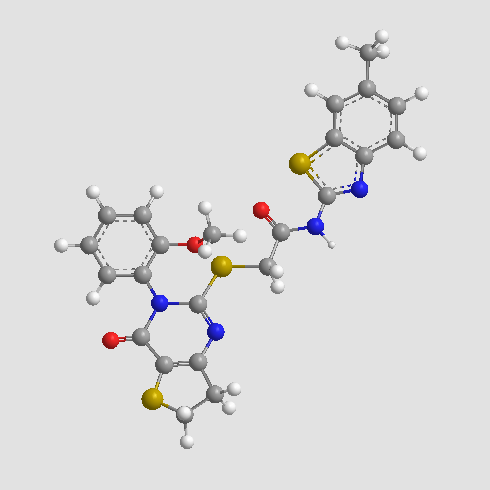 B4922 IWP 4Summary: A potent inhibitor of Wnt production
B4922 IWP 4Summary: A potent inhibitor of Wnt production -
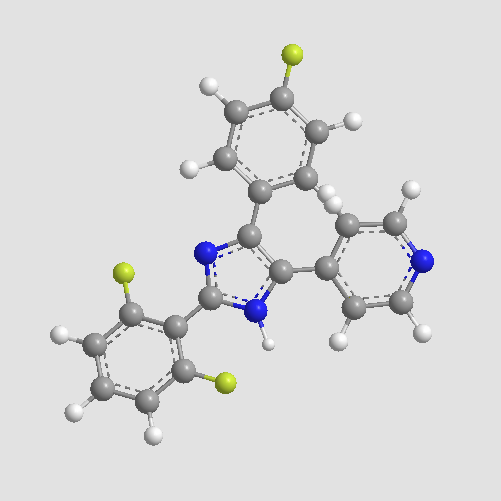 B4923 TA 01Summary: CK1ε, CK1δ,and p38α inhibitor
B4923 TA 01Summary: CK1ε, CK1δ,and p38α inhibitor -
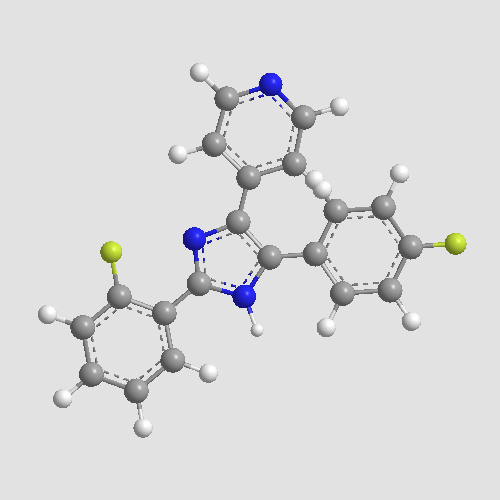 B4924 TA 02Summary: p38 MAPK inhibitor
B4924 TA 02Summary: p38 MAPK inhibitor -
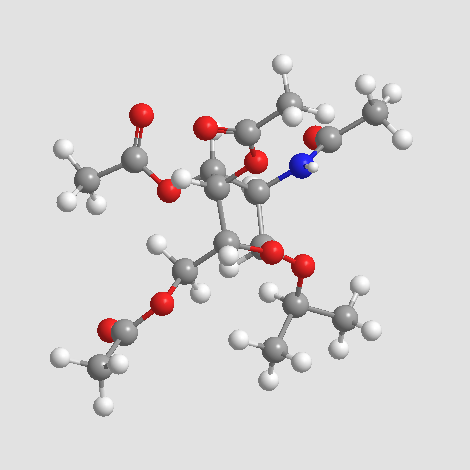 B4925 C34Summary: TLR4 inhibitor
B4925 C34Summary: TLR4 inhibitor -
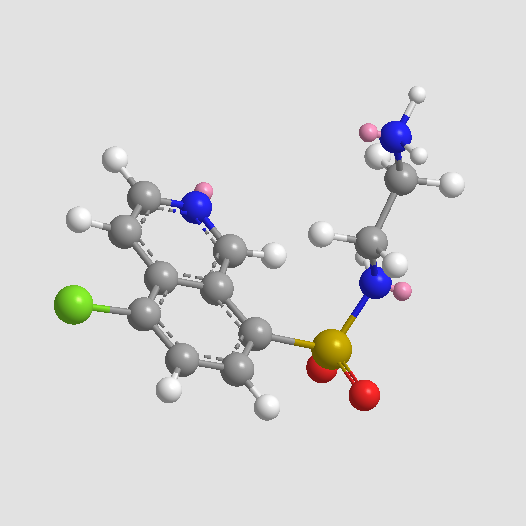 B4936 CKI 7 dihydrochloride1 CitationSummary: Casein kinase 1 (CK1) inhibitor
B4936 CKI 7 dihydrochloride1 CitationSummary: Casein kinase 1 (CK1) inhibitor -
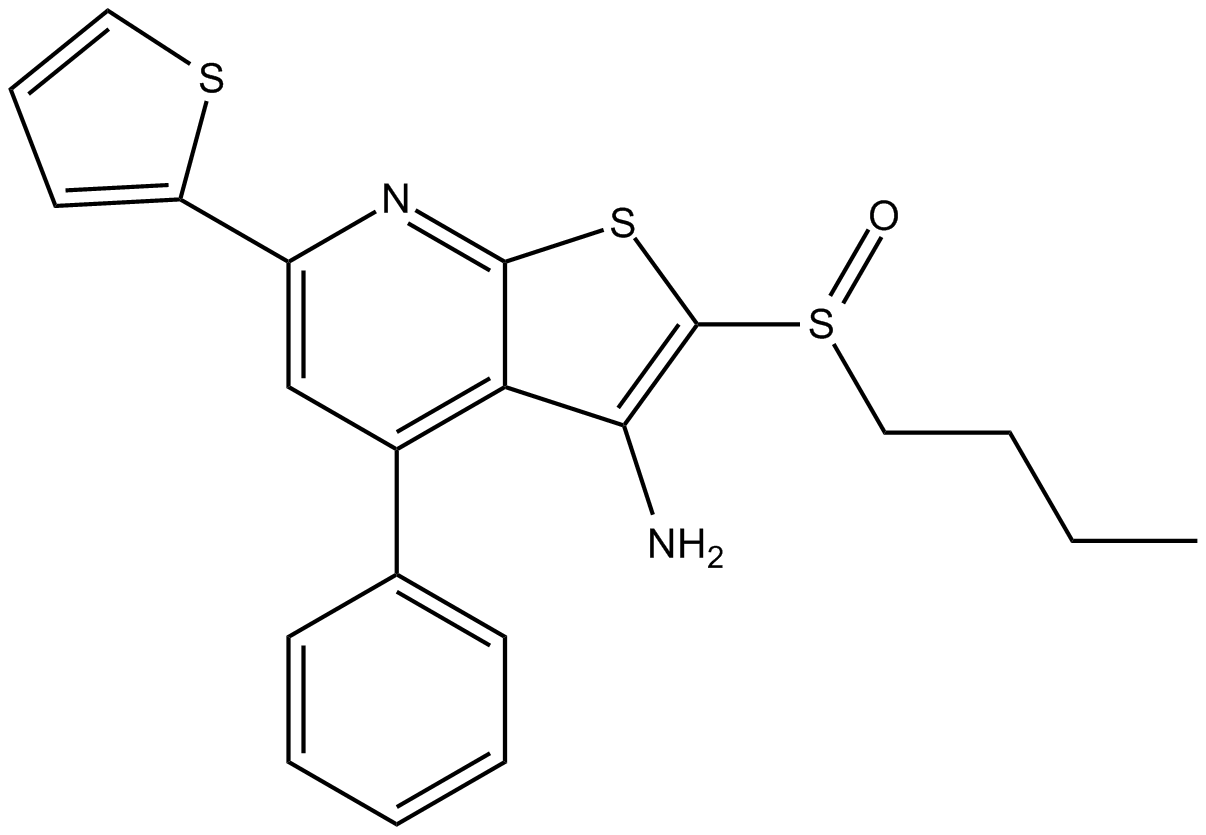 A8709 SW033291Target: 15-PGDHSummary: 15-PGDH inhibitor
A8709 SW033291Target: 15-PGDHSummary: 15-PGDH inhibitor

